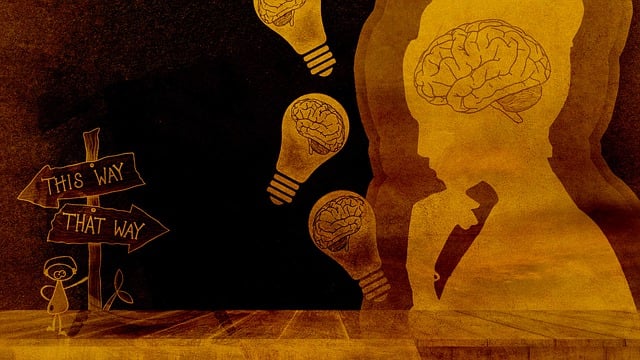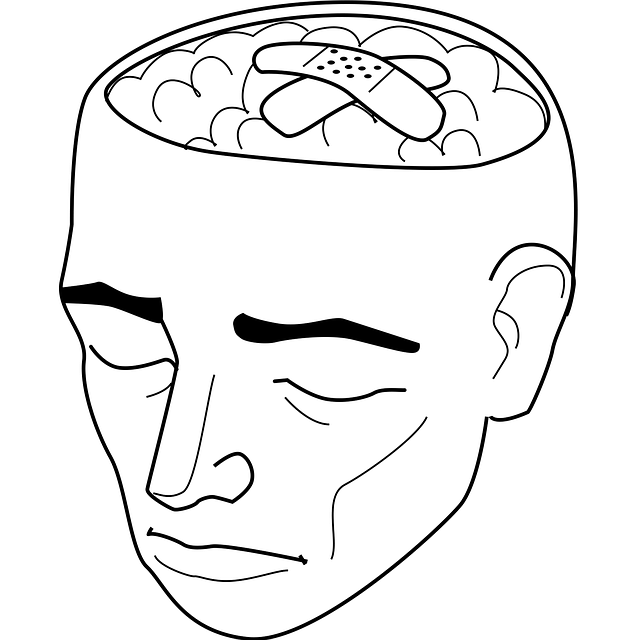Golden Spiritual-Religious Issues Therapy (GSRIT) is an innovative, compassionate approach that integrates spiritual beliefs with mental wellness support, especially effective for trauma recovery. It identifies and challenges core limiting beliefs while fostering resilience through tailored practices like mindfulness, self-care routines, and flexible thinking. Resilient Faith and Mindset (RFM), emphasizing these ancient techniques, can be integrated into healthcare provider training to transform care by addressing spiritual needs crucial for comprehensive well-being and effective coping mechanisms. Public awareness campaigns further demystify RFM, making it accessible to all as a proven method for building lasting resilience in daily life.
“Discover the power of Golden Spiritual-Religious Issues Therapy (RFM) and its unique ability to build resilience. This transformative approach goes beyond traditional therapy, engaging spiritual and religious aspects to unlock inner strength. In this comprehensive guide, we explore how RFM can help individuals identify and challenge core beliefs hindering well-being. Through practical exercises, learn techniques to enhance resilience, manage stress, and cultivate a more profound sense of self. By integrating RFM into daily life, readers will discover the path to long-lasting emotional fortitude.”
- Understanding Golden Spiritual-Religious Issues Therapy: A Unique Approach
- The Role of RFM in Resilience Building: Unlocking Inner Strength
- Identifying Core Beliefs and Their Impact on Well-being
- Practical Exercises for Enhancing Resilience through RFM
- Integrating RFM into Daily Life: Cultivating Long-lasting Resilience
Understanding Golden Spiritual-Religious Issues Therapy: A Unique Approach

Golden Spiritual-Religious Issues Therapy (GSRIT) offers a unique and profound approach to healing and resilience building. This therapy recognizes the deep connection between spiritual or religious beliefs, personal experiences, and mental wellness. By exploring and understanding these connections, GSRIT provides individuals with powerful tools to navigate life’s challenges. It is particularly effective in trauma support services, helping clients integrate their spiritual perspectives into their recovery process.
The practice involves compassionate cultivation, encouraging individuals to reflect on and make sense of their experiences in a supportive environment. This method allows for the exploration of complex emotional landscapes, fostering resilience and personal growth. Incorporating GSRIT as part of comprehensive therapy can significantly enhance mental wellness by providing individuals with a deeper understanding of themselves and their beliefs, ultimately empowering them to lead more fulfilling lives.
The Role of RFM in Resilience Building: Unlocking Inner Strength

The concept of RFM, or Resilient Faith and Mindset, has emerged as a powerful tool in the realm of mental health and well-being. It plays a pivotal role in resilience building by unlocking individuals’ inner strength and fostering their ability to navigate life’s challenges. Through spiritual and religious practices tailored to personal beliefs, RFM offers a unique approach to crisis intervention guidance, empowering people to confront and overcome adversity.
In today’s fast-paced world, where stress and mental health issues are prevalent, incorporating Golden Spiritual-Religious Issues Therapy into healthcare provider cultural competency training can be transformative. This therapy provides individuals with the resources and mindset needed to bounce back from setbacks, fostering a sense of purpose and inner resilience. By addressing spiritual and religious aspects, RFM ensures that people receive comprehensive care that resonates with their unique beliefs, enhancing their overall well-being and ability to cope with life’s crises effectively.
Identifying Core Beliefs and Their Impact on Well-being

Identifying core beliefs is a powerful step in understanding one’s mental health and well-being. These deeply held convictions, often formed early in life, shape our perceptions and responses to various situations. For instance, someone who grew up with a strong belief that they are inherently unworthy might experience anxiety or depression as an adult, even in the absence of external stressors. Recognizing these beliefs is crucial because they can be both limiting and resilient; when understood, they offer a chance for growth and transformation.
Golden Spiritual-Religious Issues Therapy provides a framework to explore these core beliefs and their impact on mental health awareness. Through compassionate cultivation practices, individuals can begin to question and challenge negative or unhelpful beliefs, fostering a more positive and adaptive mindset. This process is particularly beneficial in trauma support services, where addressing underlying belief systems can enhance recovery and resilience.
Practical Exercises for Enhancing Resilience through RFM

Resilience is a valuable asset in navigating life’s challenges, and RFM (Spiritual-Religious Issues Therapy) offers practical exercises to enhance this trait. One such exercise involves mindful reflection on personal experiences, encouraging individuals to confront and process traumatic events or difficult situations. By engaging in this practice, people can develop emotional regulation skills, allowing them to manage intense emotions and build mental fortitude.
Additionally, incorporating self-care routines into daily life is a powerful strategy for resilience building. RFM promotes the development of healthy habits such as meditation, journaling, and physical activity, which contribute to improved mental well-being. These activities not only foster emotional stability but also play a significant role in Mental Illness Stigma Reduction Efforts by promoting overall health and self-awareness, thereby encouraging individuals to seek support when needed.
Integrating RFM into Daily Life: Cultivating Long-lasting Resilience

Integrating RFM (Resilience, Flexibility, and Mindfulness) practices into daily routines is a powerful way to cultivate long-lasting resilience, enabling individuals to navigate life’s challenges with greater ease. These ancient spiritual-religious issues therapy techniques have gained modern prominence for their ability to enhance mental fortitude and overall well-being. By incorporating mindfulness exercises, flexible thinking, and resilient coping mechanisms, people can develop a profound sense of inner strength that transcends external circumstances.
Public awareness campaigns play a pivotal role in introducing these transformative practices to a wider audience. Effective communication strategies can demystify RFM, making it accessible to all. Through self-care routine development, individuals can learn to prioritize their mental health, fostering resilience that reverberates through every aspect of life. This holistic approach to well-being is not just a trend but a proven method to build enduring resilience.
The Golden Spiritual-Religious Issues Therapy (GSRIT) offers a unique and holistic approach to resilience building, focusing on unlocking inner strength through the RFM framework. By understanding core beliefs and their impact, individuals can identify and challenge limiting thoughts, fostering a more resilient mindset. The practical exercises provided offer actionable steps to enhance well-being and cultivate long-lasting resilience in daily life. Integrating these principles allows folks to navigate life’s challenges with greater ease and grace.














